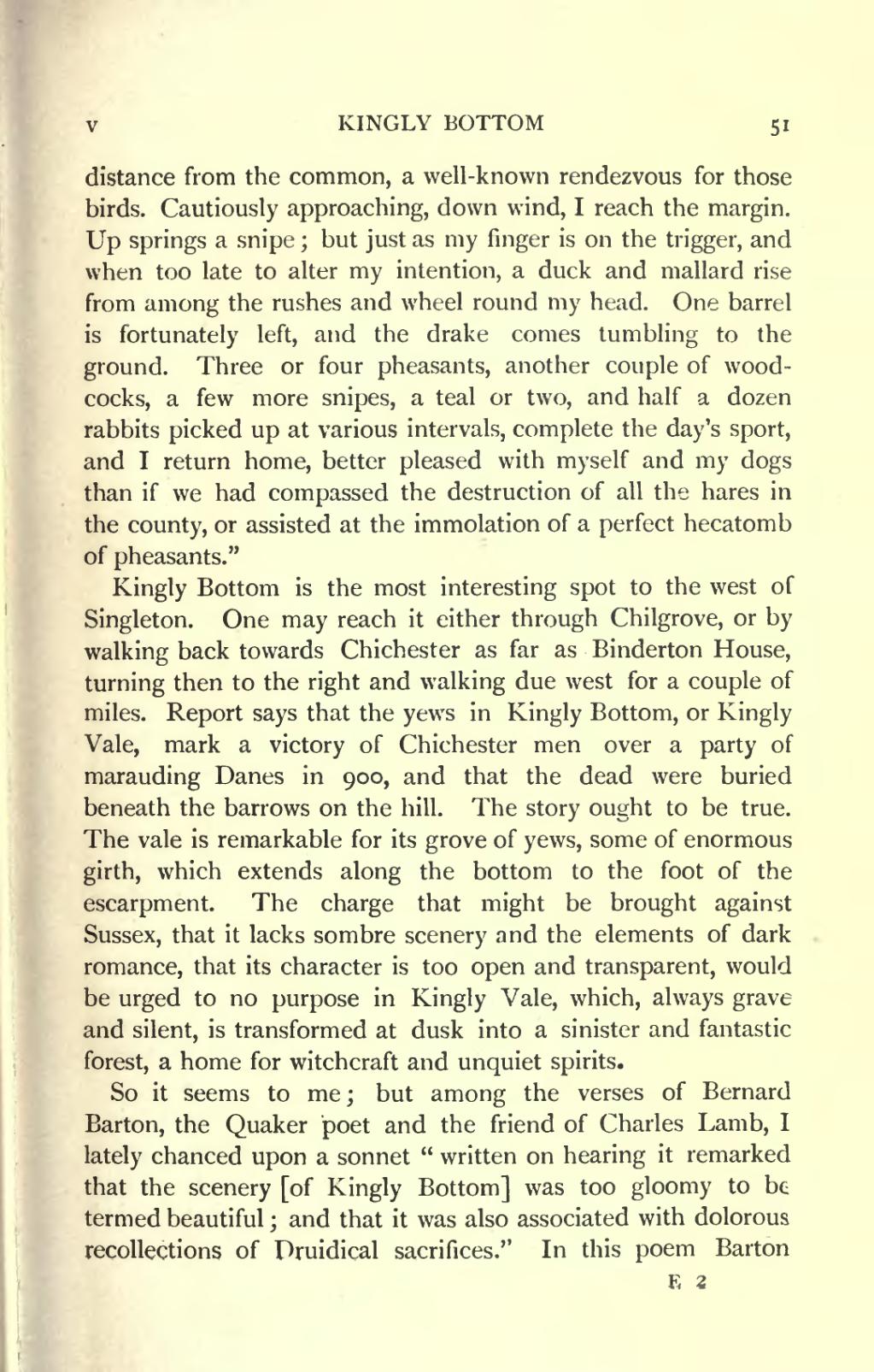distance from the common, a well-known rendezvous for those birds. Cautiously approaching, down wind, I reach the margin. Up springs a snipe; but just as my finger is on the trigger, and when too late to alter my intention, a duck and mallard rise from among the rushes and wheel round my head. One barrel is fortunately left, and the drake comes tumbling to the ground. Three or four pheasants, another couple of woodcocks, a few more snipes, a teal or two, and half a dozen rabbits picked up at various intervals, complete the day's sport, and I return home, better pleased with myself and my dogs than if we had compassed the destruction of all the hares in the county, or assisted at the immolation of a perfect hecatomb of pheasants."
Kingly Bottom is the most interesting spot to the west of Singleton. One may reach it either through Chilgrove, or by walking back towards Chichester as far as Binderton House, turning then to the right and walking due west for a couple of miles. Report says that the yews in Kingly Bottom, or Kingly Vale, mark a victory of Chichester men over a party of marauding Danes in 900, and that the dead were buried beneath the barrows on the hill. The story ought to be true. The vale is remarkable for its grove of yews, some of enormous girth, which extends along the bottom to the foot of the escarpment. The charge that might be brought against Sussex, that it lacks sombre scenery and the elements of dark romance, that its character is too open and transparent, would be urged to no purpose in Kingly Vale, which, always grave and silent, is transformed at dusk into a sinister and fantastic forest, a home for witchcraft and unquiet spirits.
So it seems to me; but among the verses of Bernard Barton, the Quaker poet and the friend of Charles Lamb, I lately chanced upon a sonnet "written on hearing it remarked that the scenery [of Kingly Bottom] was too gloomy to be termed beautiful; and that it was also associated with dolorous recollections of Druidical sacrifices." In this poem Barton

